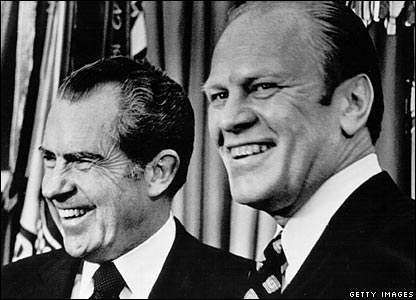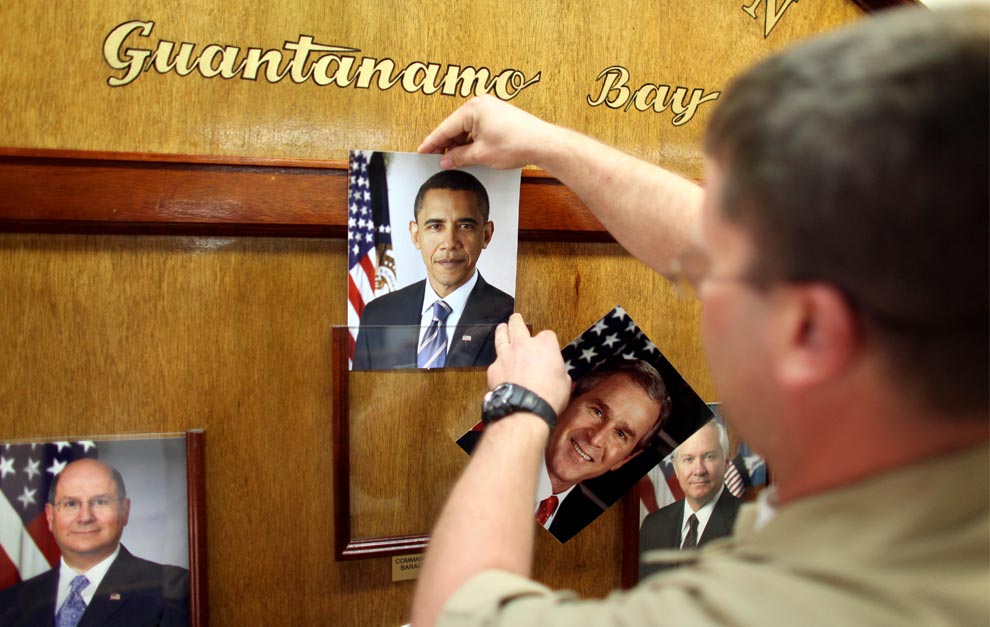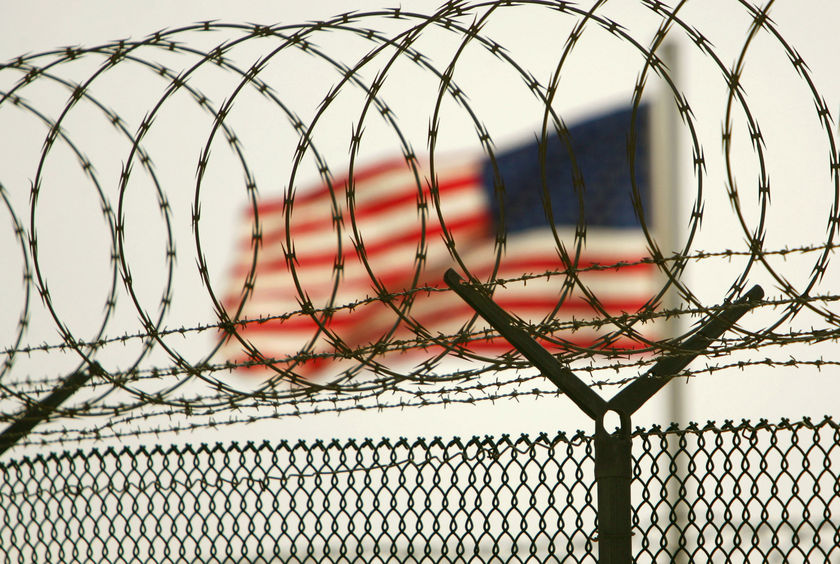“Guantanamo may be Dick Cheney’s idea of America, but it’s not mine,’ Morello said in a statement announcing the effort. ‘The fact that music I helped create was used in crimes against humanity sickens me.’” A group of musicians including Tom Morello of Rage Against the Machine, Trent Reznor of Nine Inch Nails, R.E.M., Billy Bragg, Pearl Jam, the Roots, Rosanne Cash, and David Byrne demand that Gitmo close, and that their music stop being used for torture. “If there are any legal options that can be realistically taken they will be aggressively pursued,” Reznor promised.“
Tag: Gitmo Gulag
Dusty and the Black Sites.
“Eventually, the agency’s network would encompass at least eight detention centers, including one in the Middle East, one each in Iraq and Afghanistan and a maximum-security long-term site at Guantanamo Bay, Cuba, that was dubbed Strawberry Fields, officials said. (It was named after a Beatles song after C.I.A. officials joked that the detainees would be held there, as the lyric put it, ‘forever.’)“
Charming. The NYT gets a window into the CIA’s top-secret “black sites” program courtesy of former #3 man Dusty Foggo, who — irony alert — is currently serving a three-year term in a Kentucky jail on fraud charges associated with Duke Cunningham. (I presume Kentucky’s finest have yet to break out the “enhanced interrogation techniques” on this joker. Speaking of which, “[n]othing exotic was required for the infamous waterboards — they were built on the spot from locally available materials…The cells were constructed with special features to prevent injury to the prisoners during interrogations: nonslip floors and flexible, plywood-covered walls to soften the impact of being slammed into the wall.“)
The District Thirteen.
“Some of the 13 manipulated the federal bureaucracy and the legal process to ‘preauthorize’ torture in the days after 9/11. Others helped implement torture, and still others helped write the memos that provided the Bush administration with a legal fig leaf after torture had already begun…Between 9/11 and the end of 2002, the Torture 13 decided to torture, then reverse-engineered the techniques, and then crafted the legal cover. Here’s who they are and what they did.“
Triskaidecaphobics, beware: From the bookmarks and in her debut for Salon, blogger Marcy Wheeler lists the thirteen officials most responsible for the Dubya-era torture regime. A baker’s dozen of orange jumpsuits, please.
Not this time, Luthor.

I’m unclear as to what the GOP thinks will happen if we move these detainees into our regular prison system (other than that it’ll probably be harder to waterboard them.) What kind of fantasyland do these yokels reside in? These detainees aren’t Lex Luthor or the Joker. They have no vast army of misguided goons waiting to help them in the Big House. (In fact, I think they’ll find they don’t have much in common with your run-of-the-mill hard time lifer.) Nor have they concocted any diabolical master plans to escape from these extremely secure institutions. Newsflash: Those supercriminal types you read about in comics don’t actually exist. (And, while we’re debunking conservative fantasies, forget what you saw Jack Bauer do: “ticking time bomb” scenarios don’t in fact happen either, and, even if they did, torture is in no way effective as a means of obtaining the information you’d need. Not that its efficacy matters anyway, because it’s a war crime regardless.)
Absurd. Blatantly absurd. And altogether irritating that, once again, too many Democrats in Congress are not only taking these inchoate lunacies seriously, but grimly echoing them as if there’s even a modicum of sound reasoning going on here. Can these conservatives and their Dem enablers distinguish between the Real World and their bizarre, half-baked realm of nightmares anymore? At this point, I half-expect Chuck Grassley and Harry Reid to tell me they’re imprisoning Zubadayah, Khalid Sheikh Mohammed, et al in a pane of glass and shooting them into the far reaches of space. I mean, it worked for General Zod in Superman II, right?

Onward, Christian Soldiers.

Also linked in Rich’s piece is a damning profile of Donald Rumsfeld’s tenure at Defense by GQ’s Robert Draper, which happens to include these bizarre and, diplomatically speaking, blatantly idiotic Christian-minded cover sheets created especially for Dubya’s briefings. “This mixing of Crusades-like messaging with war imagery, which until now has not been revealed, had become routine…At least one Muslim analyst in the building had been greatly offended; others privately worried that if these covers were leaked during a war conducted in an Islamic nation, the fallout–as one Pentagon staffer would later say — ‘would be as bad as Abu Ghraib.’ But the Pentagon’s top officials were apparently unconcerned about the effect such a disclosure might have on the conduct of the war or on Bush’s public standing…Rumsfeld likely saw the Scriptures as a way of making a personal connection with a president who frequently quoted the Bible.”
The Ghosts of Ford and Bourne.


Well, I’ve been traveling over the past few days, and thus haven’t been following the news as closely as usual. Still, even given President Obama’s health care announcement on Monday (highly reminiscent of the NRA in that it purports to let the big players in the health care industry help write the codes, so to speak) and the welcome declaration on Wednesday that the administration would soon seek a new regulatory apparatus for derivatives markets, Franklin Roosevelt was not the first president that came to mind as a point of reference for Obama this week.
No, that would be Gerald Ford, who, most historians agree, was an honorable man thrust into a thorny dilemma by the crimes of his predecessor, and who grievously hamstrung his own brief administration by deciding to pardon Richard Nixon. And now, it seems, history gets dangerously close to repeating itself. For, it’s moved beyond obvious that the Dubya administration not only willfully engaged in torture — clearly, bad enough — but did so to compel false confessions of an Iraq-9/11 connection that they knew never existed. And yet, we’ve already witnessed the ungainly sight of President Obama equivocating on the question of prosecutions in the name of some dubious “time for reflection, not retribution.” (Never mind that, as President Obama reminds us on other matters, wounds, like corruption, fester in the dark.)
This week, President Obama has compounded his recent error — twice. In the first of two eleventh-hour reversals, Obama — who has promised us “an unprecedented level of openness in government” many times over — instead chose to side with the publicists of the Pentagon and block the court-ordered release of new photographs detailing detainee abuse: “‘The publication of these photos would not add any additional benefit to our understanding of what was carried out in the past by a small number of individuals,’ Obama said yesterday. ‘In fact, the most direct consequence of releasing them, I believe, would be to further inflame anti-American opinion and to put our troops in danger.‘” (How bad are they? If Sy Hersh is correct, and there’s no reason to think he isn’t, they could be very, very bad.)
Then, today, the Obama administration announced they will continue using extra-legal military tribunals, not federal courts or military courts martial, for Gitmo suspects. “‘Military commissions have a long tradition in the United States,’ said Obama in a statement. ‘They are appropriate for trying enemies who violate the laws of war, provided that they are properly structured and administered.’” (The key line of the WP story: “In recent weeks, however, the administration appears to have bowed to fears articulated by the Pentagon that bringing some detainees before regular courts presented enormous legal hurdles and could risk acquittals.)”
Obama’s statements aside, the arguments — re: excuses — in favor of blocking the release of these no-doubt-horrifying photos and maintaining extralegal tribunals — now with 33% less illegality! — are the thin gruel you might expect. The WP’s Dan Froomkin already eviscerated the former quite devastatingly, while Salon‘s Glenn Greenwald, laudable as usual, has taken point on the idiocy of the latter: “[W]e’ll give due process as long as we’re sure we can win, and if we can’t, we’ll give you something less.” In both cases, the principle animating the advice given to President Obama seems mainly to be the usual self-serving, CYA behavior of Dubya holdovers at the Pentagon.
But that doesn’t absolve President Obama of his failures here. For whatever reason — perhaps he’s trying to smooth things over in these areas so he can focus on the considerable domestic problems on his plate — Obama is increasingly making the exact same mistake as Gerald Ford. As other commentators have pointed out, by shoving the rampant illegalities of the GWoT under the rug — or worse, perpetuating them — Obama is dangerously close to making his administration retroactively complicit in the crimes of the previous administration.
Now, I’d like to move on to fixing the economy and universal health care — not to mention voting, lobbying, and campaign finance reform — as much as the next guy., But sidestepping the tough choices on torture and the imperial presidency, as Paul Krugman (whom I’ve had issues with but am in complete lockstep with here) noted a few weeks ago, is simply not an option, if we are to maintain anything resembling our national soul after this egregious wallowing in torture and illegality.
Speaking of which, a quick comment on the emerging question of what and when Speaker Pelosi knew about torture (which the Republicans have shamelessly latched onto like a life raft — see in particular Karl Rove frantically pointing at her to save his own skin the other day. You can almost smell the desperate flop sweat exuding from his every pore.) Well, let’s look into it. Commissions, investigations, prosecutions — let’s quit screwing around and start getting to the bottom of this fiasco. I can’t believe I have to keep writing this like it’s even a bone of contention, but look: If we can’t get it together enough to collectively agree that torture is both immoral and illegal, and that those who designed and orchestrated these war crimes during the Dubya administration be subject to investigation, prosecution, and punishment, then we might as well call this whole “rule of law” thing off. As ethicist David Luban noted yesterday in congressional testimony, the relevant case law here is not oblique. Either the laws apply to those at the very top, or they don’t — in which case, it’s hard to see why anyone else should feel bound to respect them either.
Which brings me back to pragmatism. Hey, in general, I’m all for it, particularly when you consider all the many imbecilities thrust upon the world by the blind ideological purity of the neocons of late. But, let’s remember, the limits of pragmatism as a guiding national philosophy were exposed before all the world before Obama, or even FDR, ever took office. When, after several years of trying to stay well out of the whole mess, Woodrow Wilson entered America into World War I in 1917, the very fathers of Pragmatism, most notably philosopher of education John Dewey, convinced themselves war was now the correct call and exhorted their fellow progressives, usually in the pages of The New Republic, to get behind it. (Many did, but others — such as Jane Addams and Nation editor Oswald Villard — did not.) War went from being a moral abomination to a great and necessary opportunity for national renewal. Given it was a done deal, the pragmatic thing to do now was to go with the flow.
Aghast at this 180-degree shift in the thinking of people he greatly admired, a young writer named Randolph Bourne called shenanigans on this “pragmatic” turnaround, and excoriated his former mentors for their lapse into war fervor. “It must never be forgotten that in every community it was the least liberal and least democratic elements among whom the preparedness and later the war sentiment was found,” Bourne wrote. “The intellectuals, in other words, have identified themselves with the least democratic forces in American life. They have assumed the leadership for war of those very classes whom the American democracy had been immemorially fighting. Only in a world where irony was dead could an intellectual class enter war at the head of such illiberal cohorts in the avowed cause of world-liberalism and world-democracy.“
Now, you’d be hard-pressed to find a bigger cheerleader for the progressives than I. But the fact remains that Bourne, who perished soon thereafter in the 1918 influenza epidemic, was prescient in a way that many of the leading progressive thinkers were not. The emotions unleashed by the Great War and its aftermath (as well as the sight of the accompanying Russian Revolution) soon fractured completely the progressive movement in America, and proved exceedingly fertile soil for the reascendancy of the most reactionary elements around. (Back then “Bolshevik” and “anarchist” were preferred as the favorite epithets of the “One Hundred Percent American” right-wing, although “socialist,” then as now, was also in vogue. At least then they had real socialists around, tho’.) And the pragmatic writers and thinkers of TNR, who thought they could ride the mad tiger through a “war to end all wars,” instead found their hopes and dreams chewed up and mangled beyond recognition. They wanted a “world made safe for democracy” and they ended up with the Red Scare, Warren Harding, and an interstitial peace at Versailles that lasted less than a generation.
The point being: however laudable a virtue in most circumstances, pragmatism for pragmatism’s sake can lead one into serious trouble. And, as a guiding light of national moral principle, it occasionally reeks. As Dewey and his TNR compatriots discovered to their everlasting chagrin, you can talk yourself into pretty much anything and deem it “pragmatic,” when it’s in fact just the path of least resistance. And, when your guiding philosophy of leadership is to always view intense opposing sides as Scylla and Charybdis, and then to steer through them by finding the calm, healthy middle, you can bet dollars-to-donuts that the conservative freaks of the industry will always be pushing that “center” as far right as possible, regardless of the issues involved. And, eventually, without a guiding moral imperative at work — like, I dunno, torture is illegal, immoral, and criminal, or the rule of law applies to everyone — you may discover that that middle channel is no longer in the middle at all, but has diverted strongly to the right. In which case, welcome to Gerald Ford territory.
Nobody wants that, of course. We — on the left, at least — all want to remember the Obama administration not as a well-meaning dupe notable mainly for its unfortunate rubberstamping of Dubya-era atrocities, but as a transformational presidency akin to those of Lincoln and the two Roosevelts. To accomplish this goal, it would behoove the White House to remember that Lincoln, pragmatic that he was, came to abolition gradually, but come to abolition he did. Or consider that Franklin Roosevelt, pragmatic that he was, eventually chose his side as well. “I should like to have it said of my first Administration that in it the forces of selfishness and of lust for power met their match,” FDR said in his renomination speech of 1936. “I should like to have it said of my second Administration that in it these forces met their master.”
I should like to have it said of President Obama’s administration as well. The alternative — Obama’s sad, “pragmatic” capitulation to Dubya-era criminals — is too depressing to contemplate. But the picture below (found here) gives you a pretty good sense of what it’ll mean for America if we don’t get to the bottom of this, and soon.

Good Riddance, Gitmo.

“[T]he orders [also] bring to an end a Central Intelligence Agency program that kept terrorism suspects in secret custody for months or years, a practice that has brought fierce criticism from foreign governments and human rights activists. They will also prohibit the C.I.A. from using coercive interrogation methods, requiring the agency to follow the same rules used by the military in interrogating terrorism suspects, government officials said.“
And there was much rejoicing! We can all breathe a little easier and stand a little taller now that America is actually starting to act like America again. (And, trust me, I won’t shed any tears over dropping the gulag and torture news category here at GitM.)
Btw, the “new sheriff in town” pic above is via The Big Picture’s very worthwhile inaugural collection, as seen at Webgoddess.
Escape from New York.
“On an island under military occupation at the edge of an empire, the armed forces of a global superpower detain hundreds and sometimes even thousands of allegedly unlawful combatants. The powerful nation consigns the detainees to a legal limbo, subjecting them to treatment that critics around the world decry as inhumane, unenlightened, and ultimately self-defeating. That may sound like a history of Guantanamo. Yet the year was 1776, the superpower was Great Britain, and the setting was New York City. The ‘unlawful’ combatants were American revolutionaries.”
in a mixed review of Edwin Burrows’ Forgotten Patriots, friend and Columbia prof John Witt notes “eerie” parallels between Guantanamo Bay and revolutionary-era Manhattan, and offers choice advice for President-elect Obama. “To succeed, he will have to reunite the twin American traditions of interest and idealism. They are traditions his predecessor tore apart, but they are the true legacy of the Revolution.“
Priority #1: Gutting the Gitmo Gulag.

“Announcing the closure of the controversial detention facility would be among the most potent signals the incoming administration could send of its sharp break with the Bush era, according to the advisers, who spoke on the condition of anonymity because they are not authorized to speak for the president-elect. They believe the move would create a global wave of diplomatic and popular goodwill that could accelerate the transfer of some detainees to other countries.” In the WP today, unnamed Obama advisors make the case for the president-elect closing the Gitmo gulag next-to-immediately. (The ACLU has echoed similarly, and the UN Human Rights Commission suggested thus back in 2006.)
Nevertheless, while agreeing Gitmo is a catastrophic mistake that needs to be rectified pronto, Slate‘s Jonathan Mahler and Newsweek‘s Dan Ephron sense some implementation problems ahead. “[T]he prisoner mess created by Bush with the stroke of a pen in November 2001, and made messier over seven years, will take time and resourcefulness to clean up…[T]he controversial facility will probably still be open for business a year from now.“
However the national embarrassment at Guantanamo is handled by the new administration, it seems a safe bet that some of the intelligence officials that have carried water for Dubya on Gitmo, torture, warrantless wiretaps, and other issues will soon be sent packing, namely Director of National Intelligence Mike McConnell and CIA head Michael Hayden. “McConnell and Hayden, both career intelligence professionals, interpret the Obama team not reaching out to them as a sign that they will not be kept on, intelligence officials said.” But, hey, heck of a job, Mikeys.
The Manchurian Handbook.

How low have we sunk under Dubya? Apparently, under this administration, we’ve actually been plagiarizing Maoist torture techniques for use in the Gitmo gulag. “‘What makes this document doubly stunning is that these were techniques to get false confessions,’ Levin said. ‘People say we need intelligence, and we do. But we don’t need false intelligence.’”


